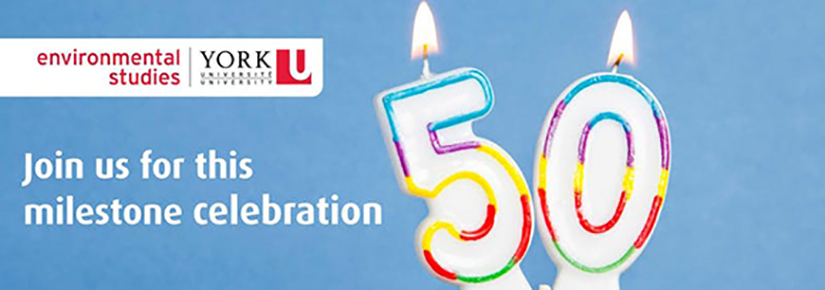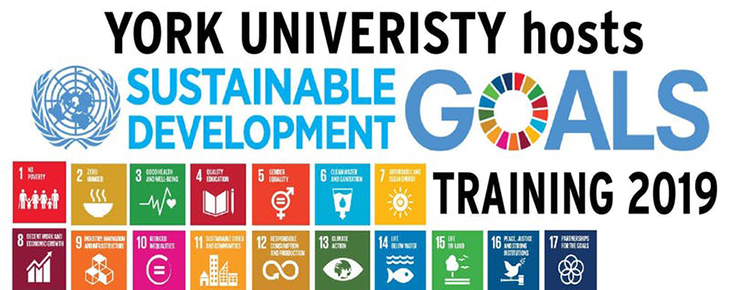York University has been named one of Canada’s Greenest Employers for the seventh straight year, gaining national recognition for reducing annual electrical consumption by 34,730,786 kWh, saving $5 million in utilities every year, and recycling 3,705,780 kg of waste.

“I am proud that York has been honoured as one of Canada’s Greenest Employers again, pushing us to set new goals and continually improve,” said Carol McAulay, vice-president, finance & administration. “York’s vision is to be a world leader in sustainability, a living lab, an incubator for sustainability leaders, a disrupter of old ways of thinking and a catalyst for transformative approaches that make an impact. Congratulations to all community members who have contributed to our collective efforts to make this great achievement possible.”
York University’s sustainability highlights
 Named by Times Higher Ed as a global impact and innovation leader – 5 in Canada and 26 in the world, based on the United Nations sustainable development goals;
Named by Times Higher Ed as a global impact and innovation leader – 5 in Canada and 26 in the world, based on the United Nations sustainable development goals;
- Successfully reduced the use of single occupant vehicles to the Keele campus from 70 per cent to 20 per cent;
- York’s ZeroWaste program diverts 68 per cent of waste from landfills;
- EcoCampus in Costa Rica is next to the largest rainforest ecosystem in Centre America;
- York University offers more than 500 courses that relate to environmental and sustainability studies;
- 22 kilometres of walking paths and more than 200 gardens, including the 2,000-sq-ft Maloca Community Garden; and
- Water refill stations across the University replaced disposable water bottles.
Read more about York’s commitment to sustainability at http://sustainability.info.yorku.ca/.



 ving for the Easter long weekend.
ving for the Easter long weekend.
 During the 2018-19 academic year, FES celebrates 50 years of global research impact, dynamic teaching and experiential education, and fostering community participation and engaged citizenship.
During the 2018-19 academic year, FES celebrates 50 years of global research impact, dynamic teaching and experiential education, and fostering community participation and engaged citizenship.
 On April 3, Times Higher Education (THE) revealed the list of global leaders in the results of their new Impact rankings. Based on the
On April 3, Times Higher Education (THE) revealed the list of global leaders in the results of their new Impact rankings. Based on the 
 Dawn Bazely, University Professor and a faculty member in the Department of Biology in the Faculty of Science, will deliver the next featured lecture in the Sustainability Seminar Series.
Dawn Bazely, University Professor and a faculty member in the Department of Biology in the Faculty of Science, will deliver the next featured lecture in the Sustainability Seminar Series.

 Nominations for the President’s Sustainability Leadership Awards are now open. Nominations will be accepted until March 18.
Nominations for the President’s Sustainability Leadership Awards are now open. Nominations will be accepted until March 18.
 The United Nations Sustainable Development Goals are 17 goals developed by the UN in 2015 that help to better understand and solve a wide range of global environmental challenges, including: climate change, food security, ecological and wildlife preservation, gender equality, economic prosperity and access to education. By spreading awareness of the 17 UN SDGs, future generations will be inspired to act and solve the many environmental challenges we face today.
The United Nations Sustainable Development Goals are 17 goals developed by the UN in 2015 that help to better understand and solve a wide range of global environmental challenges, including: climate change, food security, ecological and wildlife preservation, gender equality, economic prosperity and access to education. By spreading awareness of the 17 UN SDGs, future generations will be inspired to act and solve the many environmental challenges we face today.